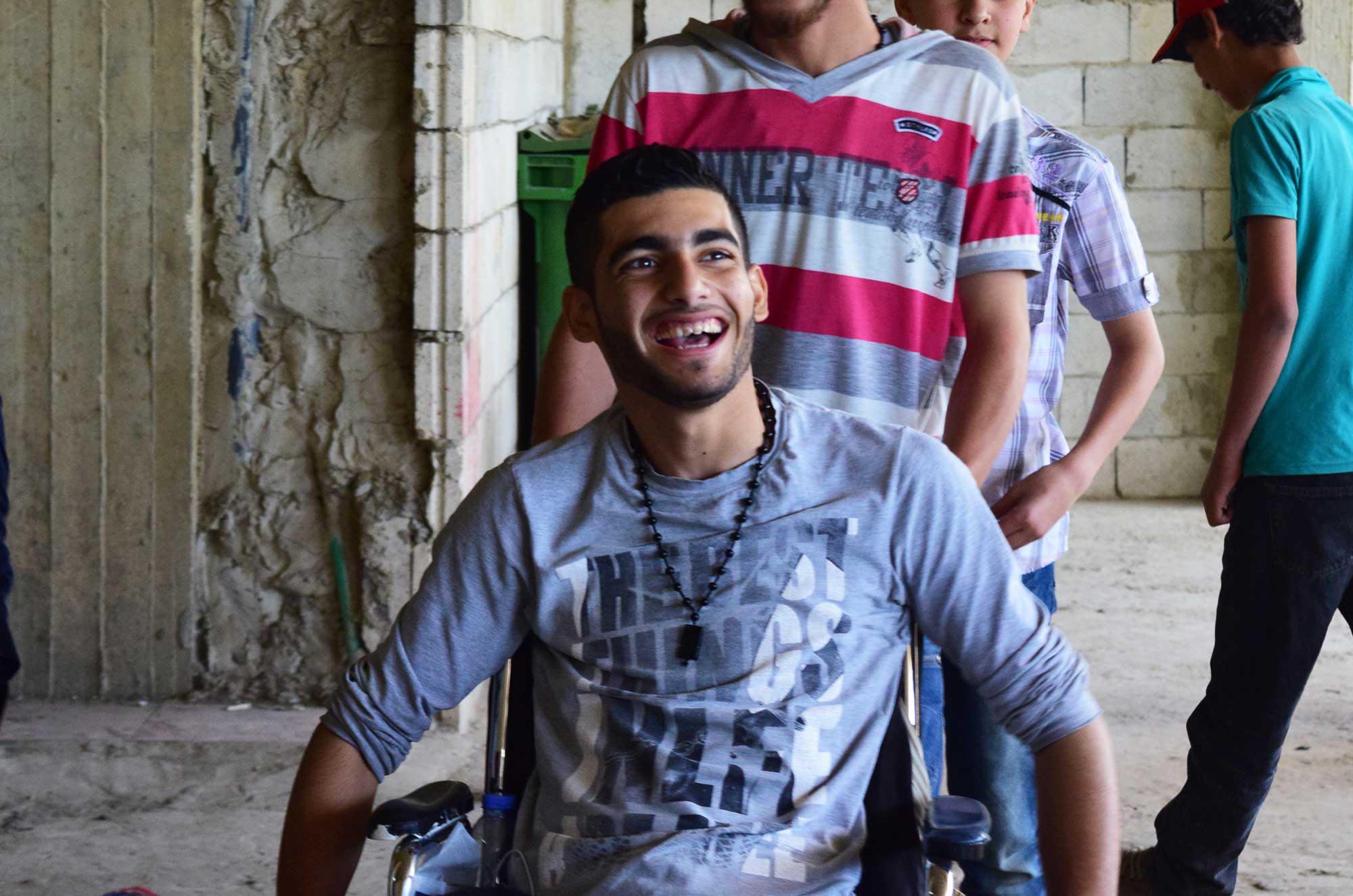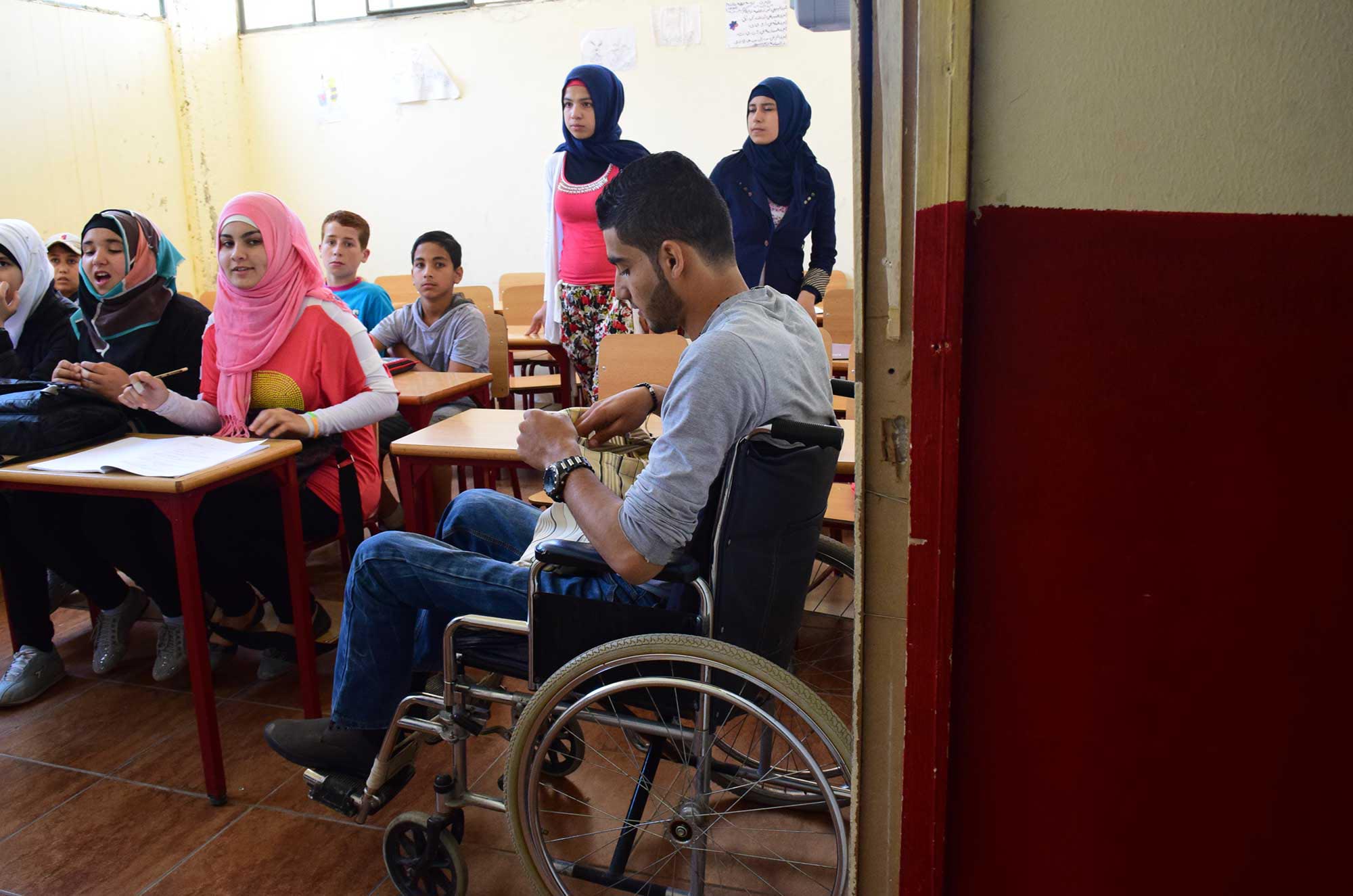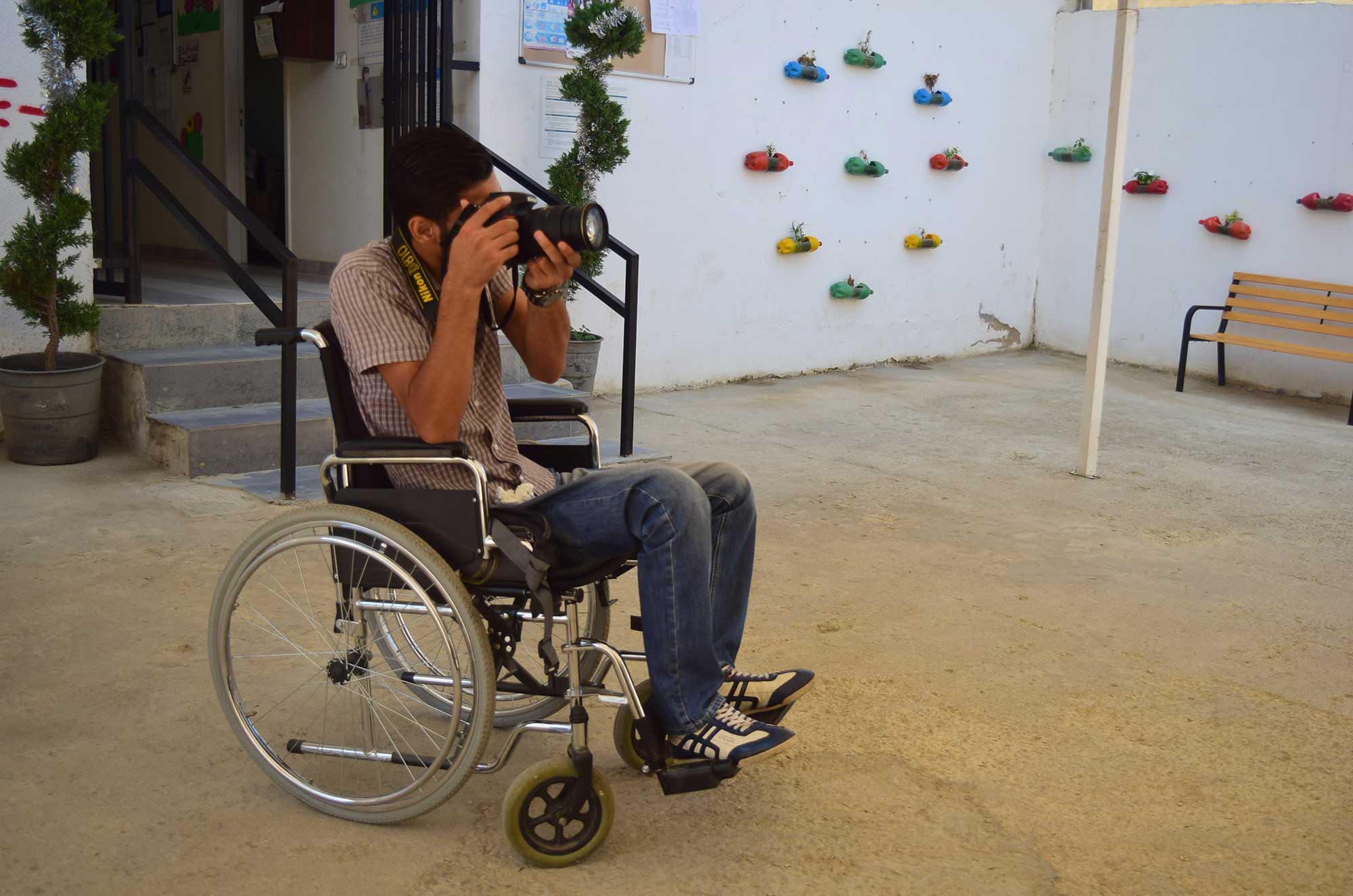Aug, 2015
Adnan el Farmali is 18 years old and lives in Akkar, North Lebanon with his parents and six siblings. But it’s not really home.
Adnan and his family fled their home in Homs, Syria after Adnan was shot in the back by a sniper while crossing the town bridge to go buy bread for his family. The bullet entered his spine and left him paralyzed.
Adnan was only 13 at the time. “I stayed three weeks in a field hospital, unconscious, and the doctors told my parents if I was lucky enough to wake up I would only be able to open my eyes,” he explains in a matter-of-fact tone. “The doctor said the rest of my body would be completely paralyzed.”
When Adnan finally woke up, he was paralyzed, but only from the waist down. Then, militants on both sides of the conflict began entering the hospital under the pretext of looking for fugitives. Scared of sudden armed attacks on the hospital, Adnan’s parents smuggled him out to Lebanon where they could all live with an uncle in the northern part of the country.
Finding Treatment as a Refugee in Lebanon
After an arduous journey, Adnan and his family arrived in Lebanon. “I was constantly bleeding,” Adnan says. “My parents took me from one hospital to another but they wouldn’t treat me because we had no money.” Finally they found a public hospital in Tripoli where he stayed for two months.


When Adnan left the hospital he couldn’t afford to keep up with his physical therapy and ended up at home for a whole year. “I was extremely sad that year. I locked myself in my room, didn’t even bother to take my medication. I thought about suicide. Everything was collapsing: my dreams, my future, my body, my ability to be independent. I couldn’t even go to the bathroom on my own.”
At 14, Adnan decided to take matters into his own hands and passed exams for grade seven while in Lebanon. Adnan saw it as a major breakthrough, but then discovered he needed to validate the certificate to enter high school in Lebanon. That would mean returning to Syria to obtain the official papers, an impossible mission, he says. “So I dropped the idea of going to high school.”
Anera Offers Syrian Refugee Teen Educational Opportunities
For the next four years, Adnan stayed home, reading and just hanging out with his cousin at the beach. But his dream of going back to school and becoming an electrical engineer did not fade. One day, while passing an educational center in Akkar, he saw Anera’s poster encouraging youth to go back to school. It changed his life.
Anera’s innovative non-formal education program is tailored to the critical needs of an under-served target group of more than 11,000 youth, including Syrian, Palestinian and Lebanese boys and girls between 14-18 years of age. The skills-training classes are organized with support from UNICEF and focus on teaching critical skills through a flexible study program that includes math, English and Arabic. The goal is to help teens reintegrate into the formal education system or improve their job prospects through skills training.
Under Anera’s supervision, Adnan took courses in photography, which gave him marketable skills. The best part of the program, Adnan says, is how it accommodates people with disabilities. “The centers are equipped with elevators and classes are organized on the ground floor, where students in wheelchairs don’t have to climb the stairs.” And with Anera’s support, the supervisor of the educational center offered Adnan a private driver to and from class, using a car with large backbench where he can sit comfortably.


Overcoming Tragedy to Pursue a Dream
“Everything about this program makes me happy,” Adnan says with a broad smile. “It’s accessible, the subjects are interesting and we get to learn useful skills like photography, which has become my passion.”
Adnan has felt the cruelty of war. “Sometimes I asked myself why the sniper picked me and not others.” But now he has rediscovered his excitement and love for education. “Now I thank God I am alive and I can pursue my dream of becoming an engineer.”
This project was made possible through the generous funding of the government of Germany.






